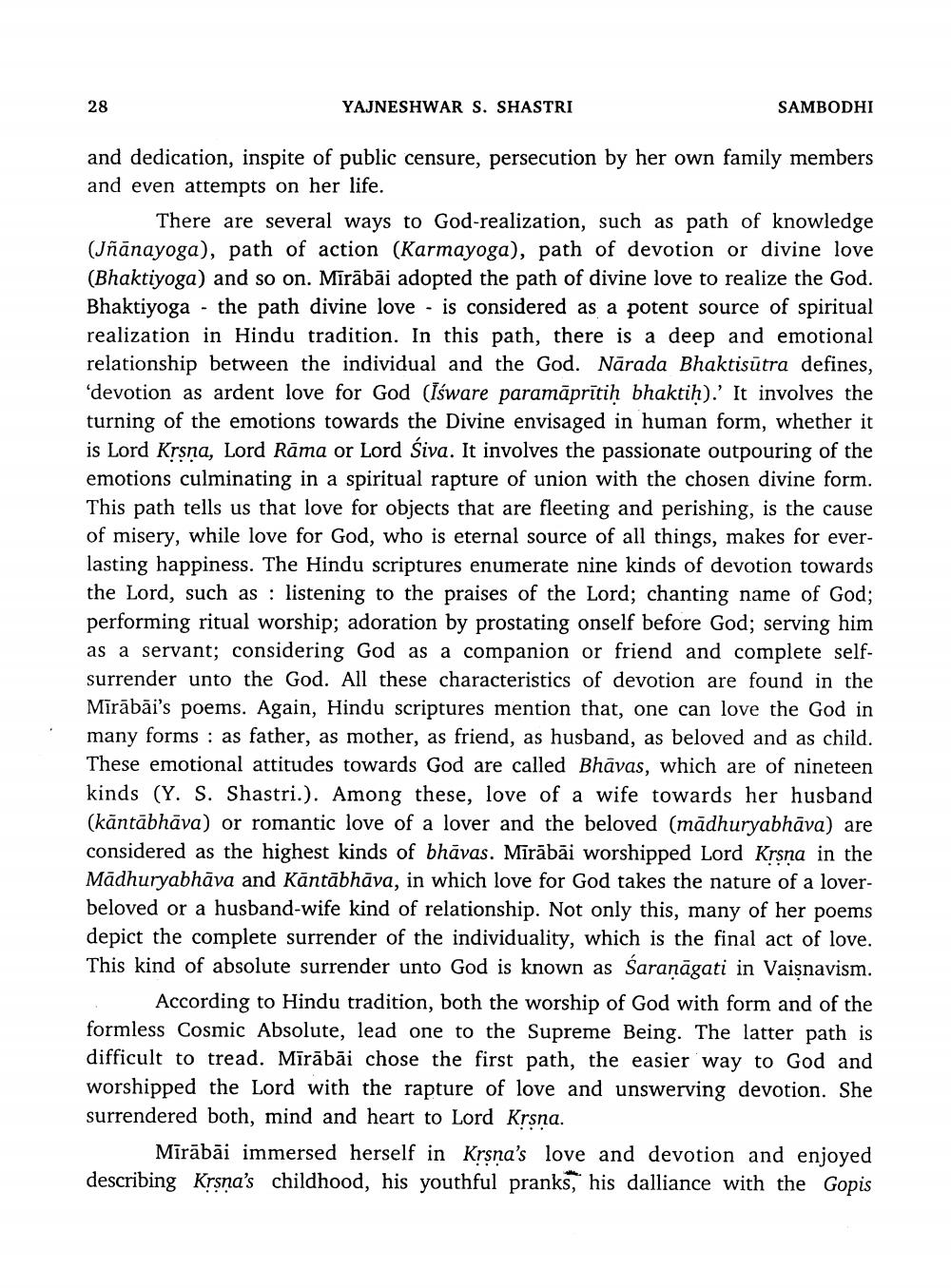________________
28
YAJNESHWAR S. SHASTRI
SAMBODHI
and dedication, inspite of public censure, persecution by her own family members and even attempts on her life.
There are several ways to God-realization, such as path of knowledge (Iñānayoga), path of action (Karmayoga), path of devotion or divine love (Bhaktiyoga) and so on. Mīrābāi adopted the path of divine love to realize the God. Bhaktiyoga - the path divine love - is considered as a potent source of spiritual realization in Hindu tradition. In this path, there is a deep and emotional relationship between the individual and the God. Narada Bhaktisūtra defines, 'devotion as ardent love for God (IŚware paramāprītih bhaktih).' It involves the turning of the emotions towards the Divine envisaged in human form, whether it is Lord Krsna, Lord Rāma or Lord Siva. It involves the passionate outpouring of the emotions culminating in a spiritual rapture of union with the chosen divine form. This path tells us that love for objects that are fleeting and perishing, is the cause of misery, while love for God, who is eternal source of all things, makes for everlasting happiness. The Hindu scriptures enumerate nine kinds of devotion towards the Lord, such as : listening to the praises of the Lord; chanting name of God; performing ritual worship; adoration by prostating onself before God; serving him as a servant; considering God as a companion or friend and complete selfsurrender unto the God. All these characteristics of devotion are found in the Mīrābāi's poems. Again, Hindu scriptures mention that, one can love the God in many forms: as father, as mother, as friend, as husband, as beloved and as child. These emotional attitudes towards God are called Bhāvas, which are of nineteen kinds (Y. S. Shastri.). Among these, love of a wife towards her husband (kāntābhāva) or romantic love of a lover and the beloved (mädhuryabhāva) are considered as the highest kinds of bhāvas. Mīrābāi worshipped Lord Krsna in the Madhuryabhāva and Kantābhāva, in which love for God takes the nature of a loverbeloved or a husband-wife kind of relationship. Not only this, many of her poems depict the complete surrender of the individuality, which is the final act of love. This kind of absolute surrender unto God is known as Saranagati in Vaisnavism.
According to Hindu tradition, both the worship of God with form and of the formless Cosmic Absolute, lead one to the Supreme Being. The latter path is difficult to tread. Mīrābāi chose the first path, the easier way to God and worshipped the Lord with the rapture of love and unswerving devotion. She surrendered both, mind and heart to Lord Krsna.
Mirābāi immersed herself in Krsna's love and devotion and enjoyed describing Krsna's childhood, his youthful pranks, his dalliance with the Gopis




